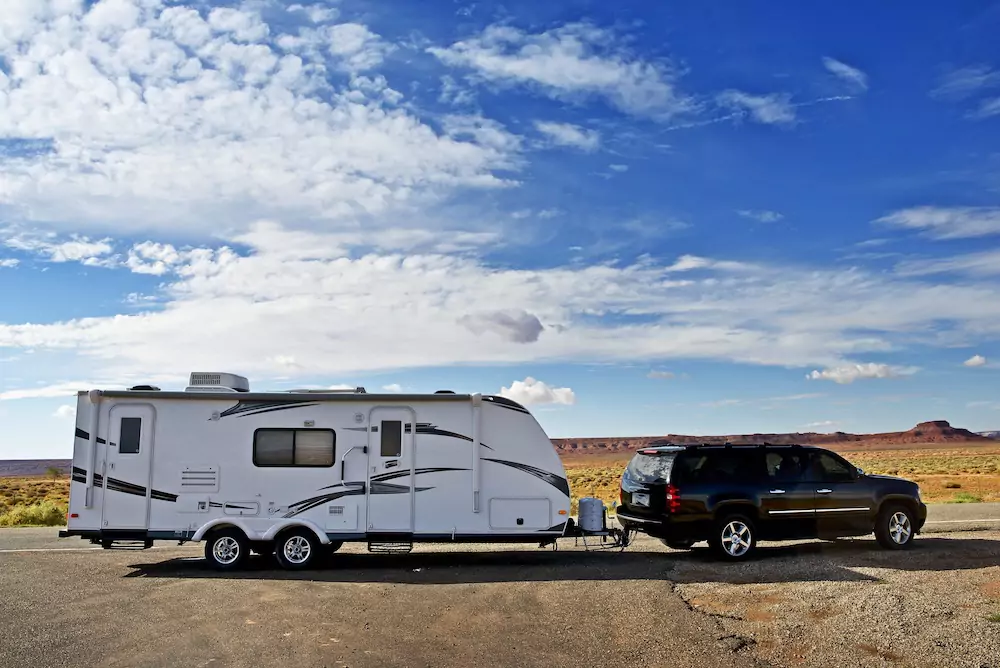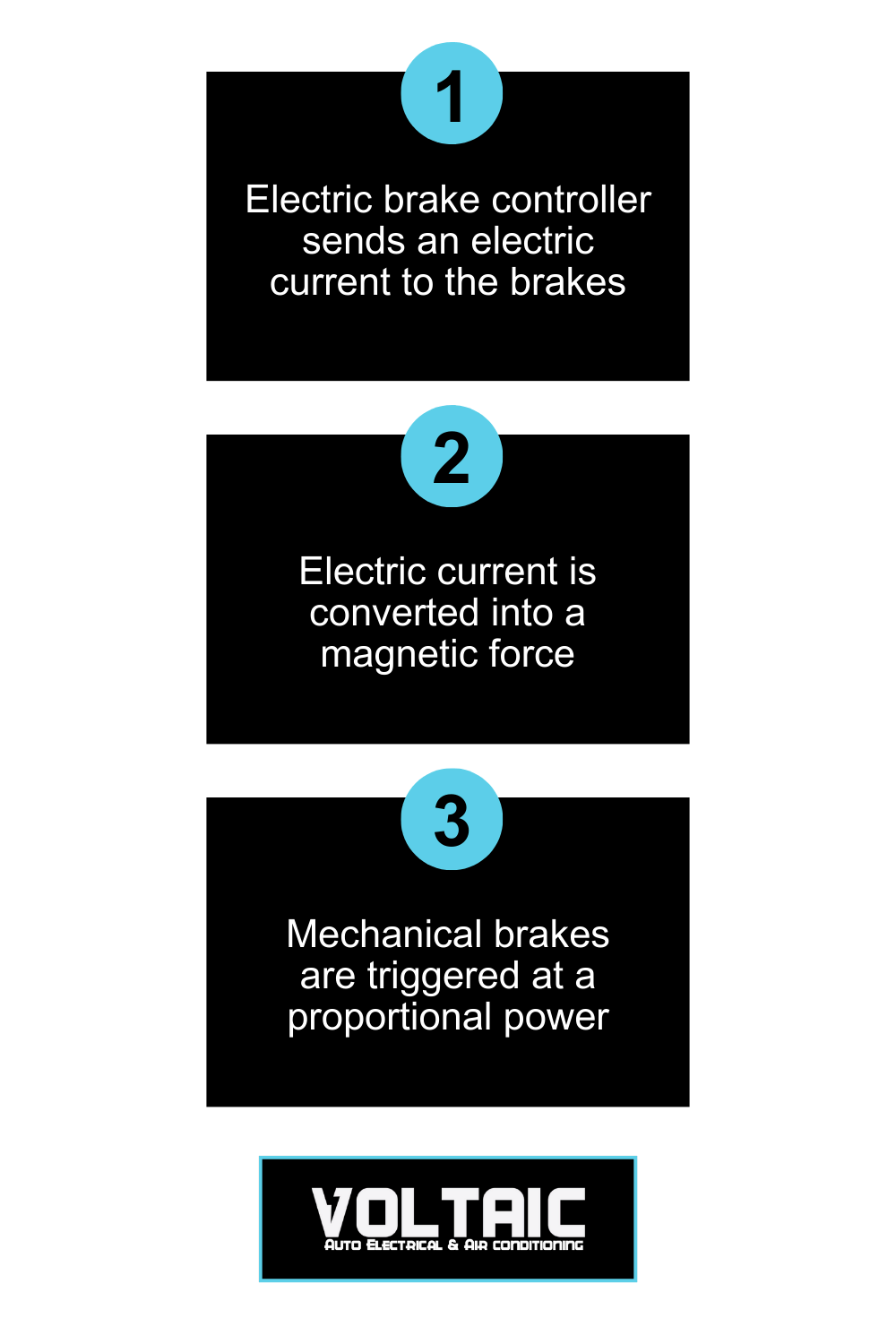A top-of-the-line braking system is vital for those who tow trailers.
I have heard many terrifying stories regarding breaks that did not perform as expected. Because electric trailer brakes offer a braking experience that is superior to traditional surge brakes, I frequently suggest them to my clients.
But how do electric trailer brakes work? I’ve explained everything you need to know below.
Key Takeaways
- How Do Electric Brakes Work? Electric brake controllers convert an electrical current into a magnetic force that applies a mechanical brake in proportion to the towing vehicle’s braking power.
- Pros: Enhanced safety, adjustable control, smooth braking, compatibility with various vehicles and trailers, easy installation.
- Cons: Issues mainly involve wiring problems, poor voltage, and improper connections, but are typically easy to fix.
- Types of Systems: Time-delayed systems for experienced drivers, and proportional systems for all levels, offering balanced braking.
- Australian Regulations: Specific braking system requirements vary based on trailer weight and type.
- Recommendation: Ideal for both new and experienced trailer users for a safer, more enjoyable journey.
How Do Electric Brakes Work on a Trailer?
Electric brake controllers send an electric current to a trailer’s brakes which is converted into a magnetic force that applies the mechanical brakes in proportion to the towing vehicle’s braking, ensuring safe and synchronised stopping.
When the tow vehicle’s brakes are applied, an electronic brake controller installed in the vehicle’s cab sends a signal to the trailer’s brakes. The trailer brakes respond in kind whether the driver of the tow vehicle gently applies the brakes while approaching a stop sign or if sudden hard brake application takes place.
Pros and Cons of Electric Trailer Brakes
Pros
There are many benefits to installing electric trailer breaks. These include:
- Superior safety (electric trailer brakes prevent trailer sway and have greater braking power)
- Adjustable to ensure optimal control when braking
- Smoother braking due to greater control (the brake control is adjustable to ensure the correct amount of force)
- Work well with a wide range of towing vehicles and trailers
- Easy installation
Cons
Typically, any problems I see with electric trailer brakes are simple to diagnose and remedy. These include:
- Wiring problems such as corrosion or other damage to wires
- Poor voltage
- Improper connections
Types of Electric Trailer Brake Systems
There are two types of electric trailer brake systems available: time-delayed and proportional.
Time Delayed Electric Brake Systems
The time delay brake control unit works by applying a varying voltage to the trailer’s brakes over a set period of time.
To achieve this, set the necessary power (voltage) setting and adjust the maximum time needed to reach that point. The time-delayed brake control needs adjustment by the towing vehicle driver as road and weather conditions change. The amount of voltage and time required to make a safe stop will also change.
While the time delay systems perform well in average situations, they cannot provide the same level of balanced braking as the proportional systems. I generally recommend that experienced drivers use the time-delayed brakes.
Proportional Electric Brake Systems
A proportional brake controller system (also called a motion sensing system) works in conjunction with the brake pedal switch and a pendulum-style circuit that will sense how quickly the vehicle is stopping.
The system applies a proportional voltage to the trailer’s brakes, causing it to decelerate at the same speed as the tow vehicle. Aside from reducing brake wear and enhancing efficiency, the proportional electric brake system operates exceptionally well in all types of road conditions.
The system also works well on the highway and is an excellent option for drivers of varying experience levels.
Braking System Requirements
The Australian Design Rules stipulate the minimum braking system for a trailer or caravan based on its weight, type and the weight of the vehicle that is towing.
| Weight | Requirement |
|---|---|
| Up to 750kgs GTM | No brakes are required. |
| 751-2,000kgs GTM | A braking system is required on the wheels of at least one axle. |
| Over 2,000kgs GTM | A brake system is required on all wheels. The system shall be able to automatically activate in the event that the trailer detaches from the tow vehicle. These ‘break-away’ systems are compulsory on all trailers over 2,000kgs GTM. |
Install Electric Brakes Today
Whether you purchased your first trailer to tow the family caravan or you have been travelling with a trailer in tow for many years, an electric trailer braking system can make your next road trip much safer and more enjoyable.
If you are interested in organising an electric brake installation, do not hesitate to reach out to our experienced and qualified auto electricians. As a Western Australian-owned and operated company, we are proud of our years of experience and look forward to meeting the community’s needs far into the future.


